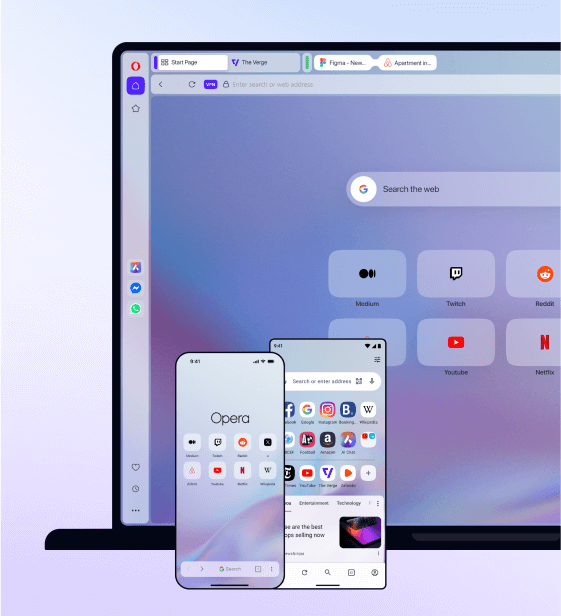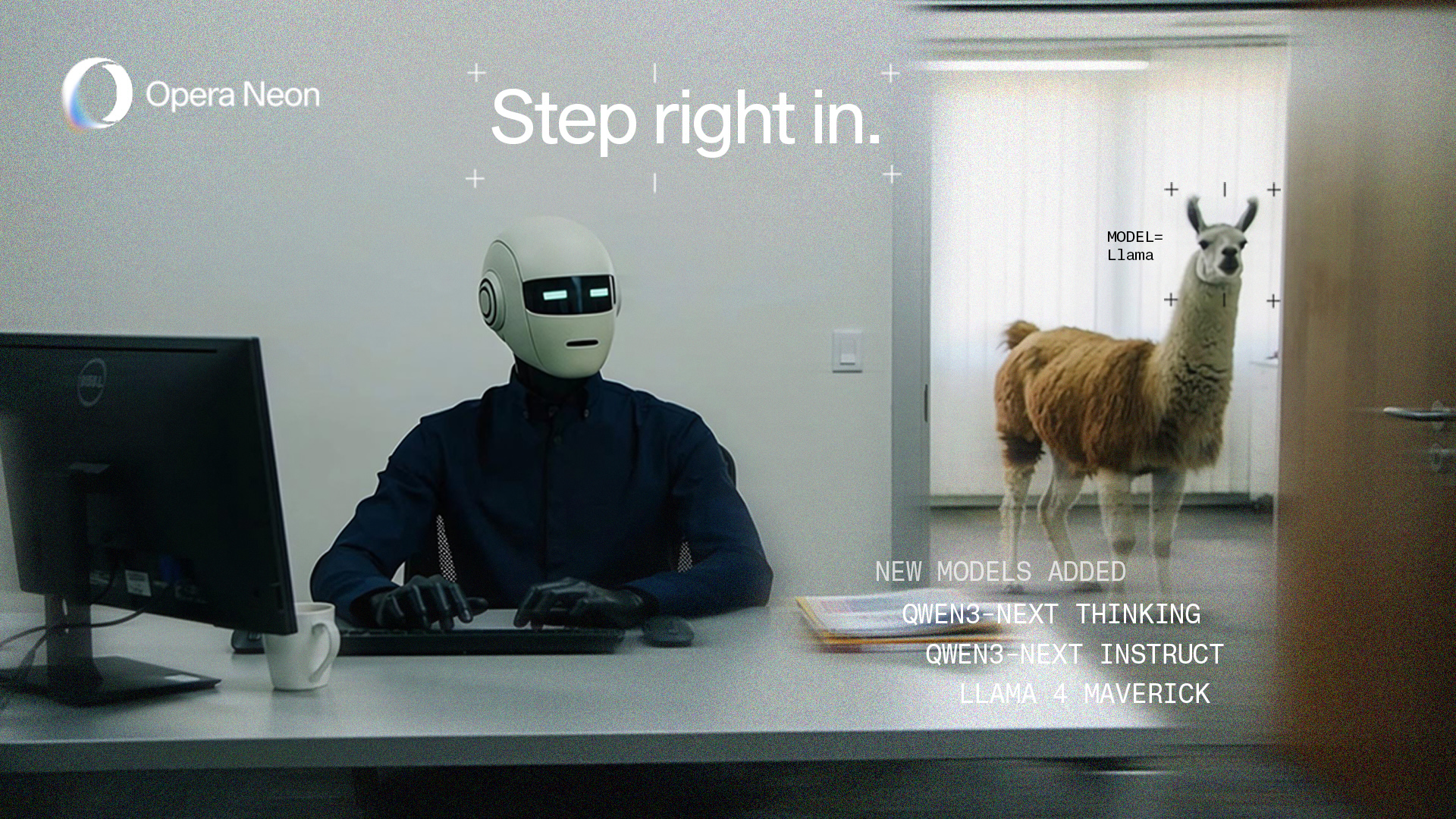The Opera Team’s Top 8 Innovation Picks from Mobile World Congress 2023

Hey readers!
The Mobile World Congress just wrapped up, and our PR team counted among the 88,500 visitors who attended! While we kicked the week off announcing our upcoming collaboration with OpenAI, we’re still buzzing from all the exciting new gadgets and ideas we saw all across the 8 massive halls of the Fira de Barcelona – which showcased breathtaking advances in speed, safety, and sustainability and of course the newest devices from the world’s leading manufacturers. So while it’s all still fresh on our minds, we wanted to share with you our 8 favorite innovations from the conference!
Foldable screens, 200 megapixel cameras, and a rollable smartphone
First up – the phones! Unsurprisingly the MWC featured a handful of exciting new handheld products, and while the winner of “Best Phone” (Apple’s iPhone 14 Pro) was not in attendance, other manufacturers jumped in to provide some thrills. Samsung, for instance, has incorporated a 200 megapixel camera in its new Galaxy 23, which automatically takes crystal clear nighttime photos. Motorola, for its part, has literally rolled out a phone that features a screen you can roll out! Much about the phone is still shrouded in mystery – including whether it will ever go on sale, let alone how much it might cost – but the technology behind it seems likely to find its way into your hands sometime soon.
6G and satellite connectivity
But what’s a phone if it doesn’t have a great connection? This was an idea that several mobile tech companies pondered ahead of the MWC, and a few had some game-changing ideas to ensure our constant connectivity. While we may still be wrapping our heads around 5G, mobile tech innovators are already talking about the next generation of the mobile network: 6G. While it isn’t quite clear exactly how this transformation will be accomplished yet, research is already projecting that it will increase network capacity by around 500 times.
One concrete goal to make 6G a reality is the convergence of terrestrial and satellite communications, which companies like Starlink and Intelsat seem poised to achieve. With such an advance we would literally never be out of reach, even when we’re not close to population centers and cellular towers. If we lose connection, our phones would simply connect to a satellite until we’re back in range!
Another key topic is point-to-point connectivity, which is being pioneered by a number of companies, among them Fraunhofer. With P2P connectivity, we wouldn’t have to suffer data bottlenecks or need to dig up the roadways to lay more cables – instead, we could simply put installations on rooftops to loop information back and forth between points! Communication between different offices in the same organization, for example, could be streamlined to maximize efficiency, ensuring we never have to slog through slow connection speeds again.
And now we get into the more wacky stuff! The future of mobile products – and what they’re capable of doing – is wild indeed, and a few innovations stood out to our team. Chief among them is VR, which captivated the audience at the MWC. SK telecom, for example, had a constant queue all conference as eager attendees waited to sit in their helicopter and enjoy the sensation of flying – all while never leaving the ground. HTC’S VIVE likewise thrilled the crowd, as those who were patient enough to wait got to kayak through an icy fjord – in Barcelona.

Interconnected cycling and remote surgery
Getting from A to B was generally a hot topic at the MWC, and one company had some exciting ideas for how to do so safely. Spoke has designed possibly the safest bike ever, rigging it with C-V2X (cellular vehicle to everything) technology, which allows the bike to communicate with all other C-V2X vehicles within a radius of several kilometers. Add to that a rear-facing camera, radar, and adjustable lighting, and all you have to worry about is not falling over!
Sometimes we simply can’t get somewhere, and here some revolutionary advances in remote medicine are especially exciting. Advances in Surgery brought us a look at The Next Hospital, which featured several remote-operated surgical machines that will enable surgeons to operate on patients from hundreds, even thousands of miles away. So perhaps you can’t get to the preeminent hospital for an important operation, but that’s okay – soon enough, they’ll be able to come to you!

Biobatteries that feed on soil
Finally, our team was impressed with Bioo, a leading biotech company that’s driving the coming biotechnological revolution. A company doing disruptive work for the greater good, Bioo has developed double-layered “biobatteries” that are capable of producing electricity by feeding on natural soil without damaging the ecosystem around them. The biobatteries are also capable of saving water, reducing carbon dioxide and heat, and powering light – all with a return on one’s investment within 10 years!

So that concludes the Opera Team’s favorites at this year’s Mobile World Congress. We can’t wait to be back in 2024!














